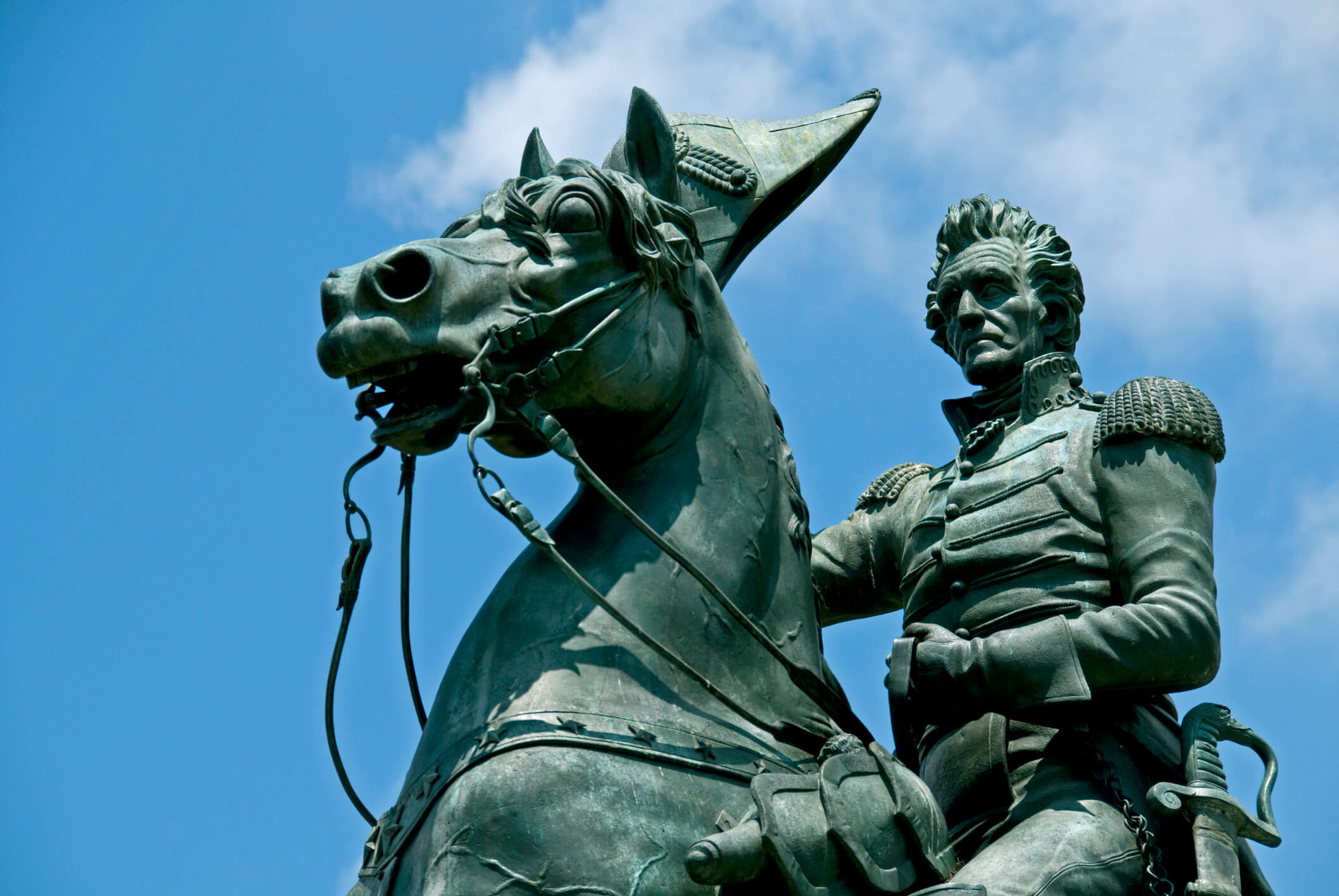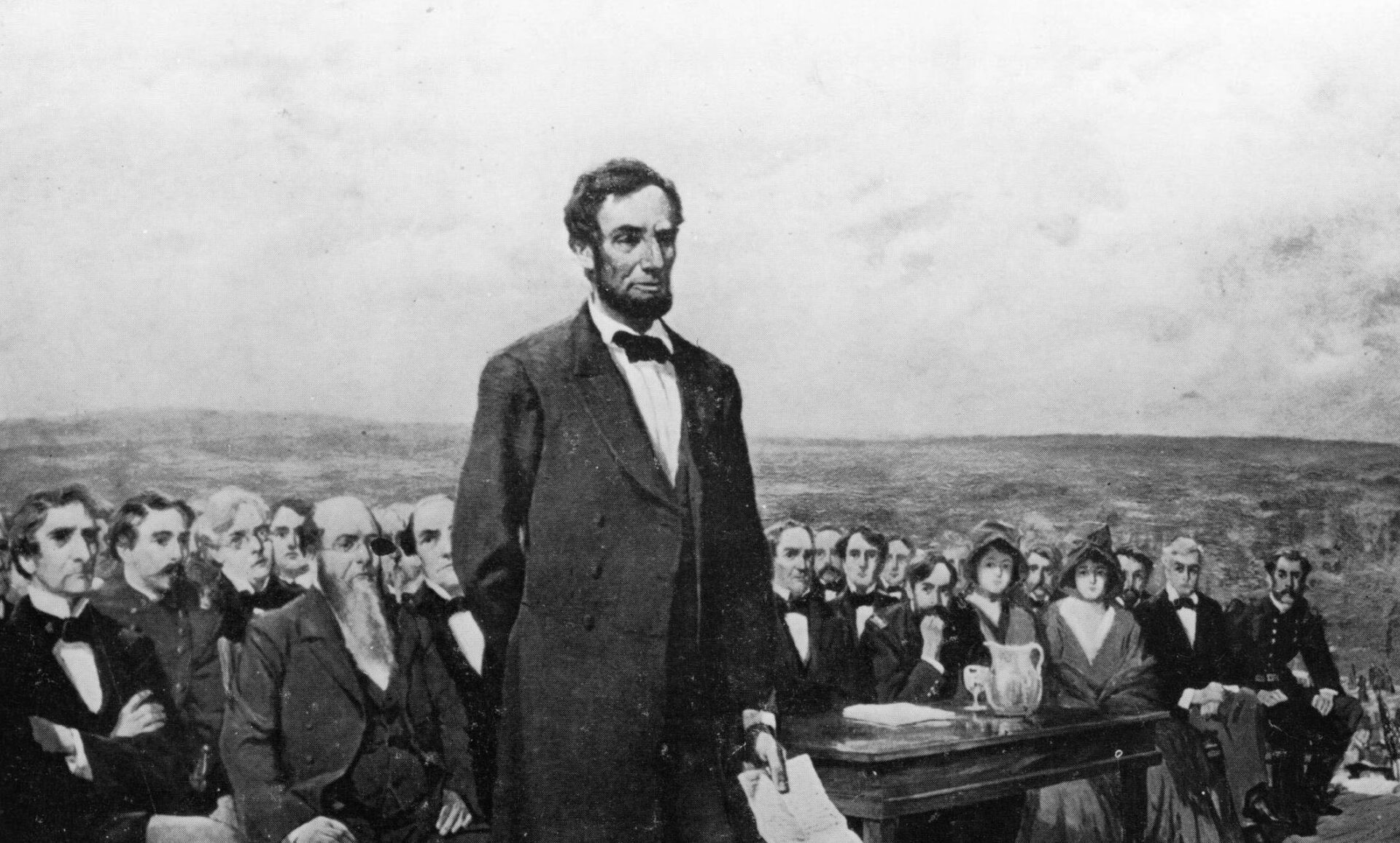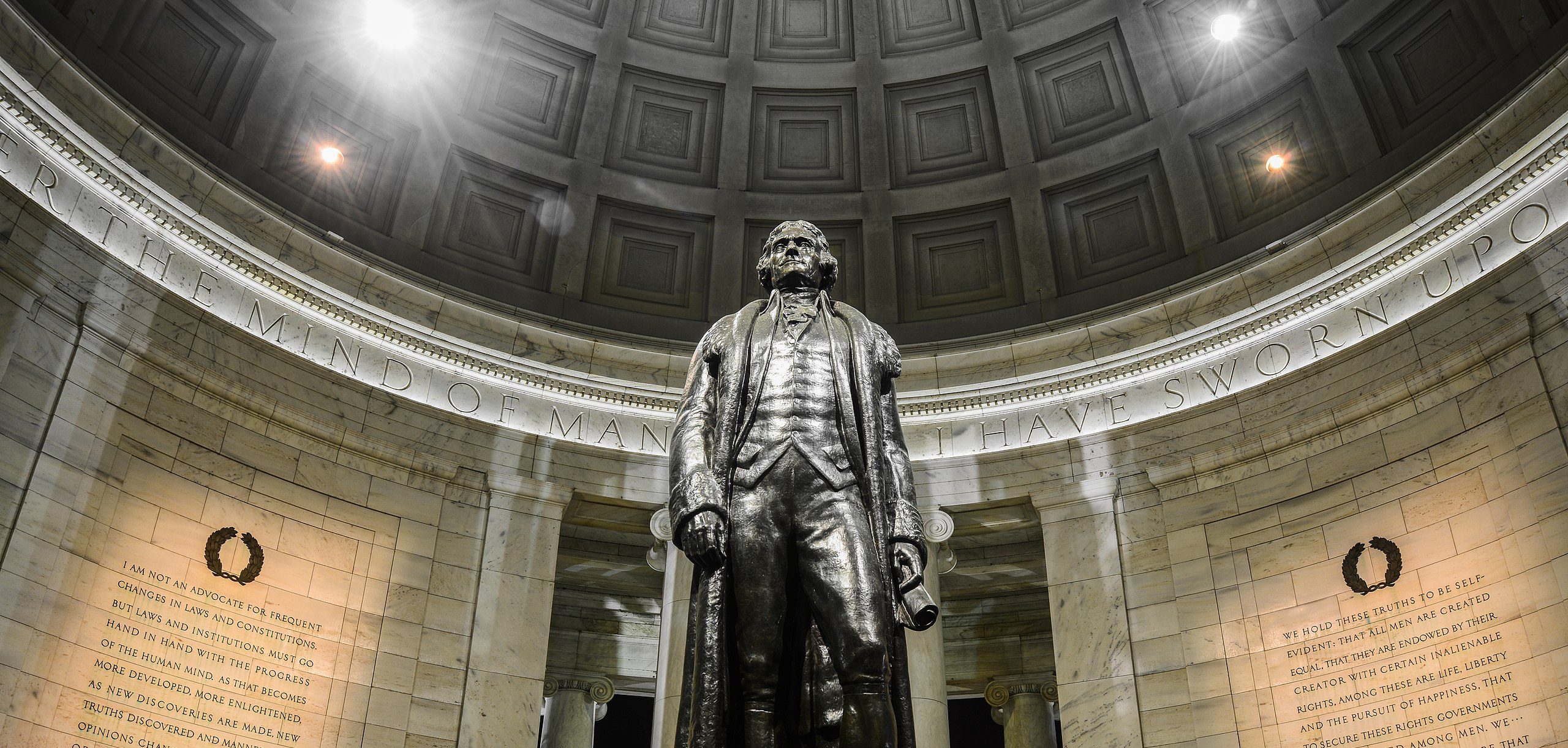“The Unanimous Declaration of the United States of America,” signed July 4, 1776, was a politically significant document in other ways than as a statement of the withdrawal of the thirteen American colonies from the British Empire and their determination to re-form themselves under a new national government. It was also an expansion of the traditional concept of “the rights of freeborn Englishmen” to include “all men . . . endowed by their Creator with certain inalienable Rights,” among them “Life, Liberty and the Pursuit of Happiness.” When Samuel Johnson asked sarcastically how it was that “the loudest yelps for liberty” are heard from “the drivers of negroes,” he was overlooking the older idea and anticipating the new one.
The Declaration’s sweeping claims had much to do with its practical, highly political purpose of justifying to the “powers of the earth” and their governments “the separate and equal station to which the Laws of Nature and of Nature’s God entitle” the “one people” now claiming that station for themselves. Its purpose was also to justify the claim that His Majesty’s government had as its “direct object the establishment of an absolute Tyranny over these states”: on the facts, an absurdly exaggerated description of British policy towards America. The experience of the thirteen colonies under the rule of the King in Parliament was not comparable to that of East Germany under Stalin in the Kremlin. And it needs to be remembered that King George III, in defeat, was a generous admirer of George Washington, who he claimed would be recognized as one of history’s great men should Washington resist the temptation to be crowned a king himself.
Being half British—my mother and grandmother were born in Scotland and my Grandfather Philpotts in London—and having Tory ancestors in the Revolutionary era who fled east to Great Britain or north to Canada at the beginning of the War for Independence, I have always viewed Mr. Jefferson’s literary masterwork with a measure of skepticism, as I do claims for “the Rights of Man” and “universal human rights.” In fact, I see no valid moral or religious justification for anything beyond the right to life, before birth and after it. All other rights, it seems to me, are justified or denied within the context of particular societies, save for the most barbarous, brutal, and tyrannical ones.
Joseph de Maistre said that he had met a Frenchman, an Italian, a Russian, and so forth, but that he had yet to meet a man who existed in the generic, culturally unspecified, and deracinated sense of the sort imagined and taken for granted by ideologues and social scientists. In the same way, I am unable to conceive of or recognize a “free man” or a “man endowed with rights.” Most rights, indeed, I should describe as negative ones: the right not to be aborted, or killed after birth for any reason other than the gravest criminal offenses; the right not to be deprived of one’s person; the right not to be tortured; the right not to be denied the freedom to worship as one wishes; the right not to be compelled to lead a life that is not of one’s choice.
The Shot Heard ’Round the World was not the musket shot fired at Lexington on April 19, 1775, but the rhetorical one approved by the Continental Congress at the Pennsylvania State House on July 4, 1776.
Beyond these points, I consider the inclusion of the Declaration of Independence among the founding documents of the United States to be groundless. It was, as I have said, a highly political statement made for the advancement of a particular policy, not a thoughtful philosophical reflection with a long list of charges appended to it—and to the very limited extent that it might be understood as such a piece of philosophy, it remains a highly subjective one. The Declaration does not suggest any form of government appropriate to the “separate and equal station” whose existence it asserts as a just replacement for the British one, except to imply that, whatever that government might turn out to be, it would ensure “liberty” for all Americans. (The traditional English formulation, far superior and more practical, is “liberties.”) The Declaration was written when the United States was still a gleam in the Founders’ eyes; it stands separated at one remove from the historical realization of the republic by an intermediary government under the Articles of Confederation. Lastly, the Declaration is not a legal document, invested with the power of any recognized government. This is not to say, of course, that it does not possess a certain nobility of language and aspiration, moving in its effect, that goes beyond simple dignity. But its significance is “foundational” only for its importance as a historical, political, and patriotic statement that constitutes an important and striking event in its own right.
So far as the Declaration of Independence does have some claim to be recognized as a founding document, this has to do with its rhetorical and emotive qualities, and the aura of profound promise and expectation these created at the time and have succeeded in sustaining for the past 248 years. One result has been an emotional and progressively irrational approach to notions of “rights” and “liberty” (which are not at all the same thing) that has been directly responsible for much of the corruption of public thought, debate, and political and social practice ever since. It reached new heights with the War to Make the World Safe for Democracy in the second decade of the twentieth century, returned with renewed vigor and extravagance after the Second World War in 1945, and escalated further following the collapse of the Soviet Union in 1991.
I would go so far as to say that the Shot Heard ’Round the World was not the musket shot fired at Lexington on April 19, 1775, but the rhetorical one approved by the Continental Congress at the Pennsylvania State House on July 4, 1776, which, two and a half centuries later, continues to set international standards for “rights,” “liberty,” and “freedom” wherever these things are at least honored in the breach, and whether their original meanings are properly understood or not. Ironically, the country where they are today most enthusiastically accepted—and most egregiously misunderstood—is Great Britain, whose political life has been progressively Americanized since Tony Blair became prime minister in 1997, infected as he was by the worst and most dangerous American misconceptions concerning all three of these things. After Britain goes to the polls on this July 4, it may well be that the “tyranny” imposed on the American colonists by George III in the final decades of the eighteenth century will be turned back upon the Britons by themselves—in full twenty-first-century form.
As the voting publics in Europe, the United States, and even Canada are turning on their liberal governments—and on the regiments of human rights lawyers who influence and substantially control them—the United Kingdom looks to be charging, mud-spattered and high in oath, in the opposite direction, into the clutches of a party led by a human-rights lawyer of the most extreme and bureaucratic type who clearly believes that elected politicians must be replaced by appointed lawyers if modern governments are to govern justly. Justifiable anger and disgust after fourteen years of misrule and incompetence by the heavily liberalized Tories are the chief reasons for the fury of the voters, who seek their revenge. Beyond that, however, the fact is that the woke insanity now rampant in the British establishment—including among its “conservative” wing—far exceeds what the United States is enduring today.
Nearly three decades ago, Mary Ann Glendon published Rights Talk: The Impoverishment of Political Discourse, in which she argued that the American obsession with individual rights—what they are, who has them, and who does not—was diverting attention from other crucial constitutional concerns. Thirty years on, this obsession has spread to Great Britain with a vengeance. Among the numerous surreal issues over which the British election campaign is being fought is the “right” of minors, including those whose age is in the single digits, to decide their gender for themselves, to choose of their own volition to subject themselves to puberty-blocking drugs and various mutilative surgeries, and the ability of the state to deny their parents the right—which is really their duty—to make their children’s decisions for them without interference from the National Health Service, the courts, and the Tavistock Clinic.
Simultaneously, public law and order in England have collapsed to the point where shoplifting and burglary have become de facto “rights” and the police have given up on prosecuting these crimes. Thus “rights” are reducible to figments of the imagination, if not actual hallucinations, and liberty has been made synonymous with license. Meanwhile, the Labour Party intends, should it be entrusted with the formation of a government on Friday, July 5, to begin realigning Great Britain with the undemocratic and increasingly tyrannical European Union from which the country succeeded in liberating itself four years ago—just as the EU’s largest and wealthiest member states are reconsidering the terms of their relationship with Brussels, as demonstrated by the most recent elections for the European Parliament and by last Sunday’s elections for the French National Assembly, in which the Rassemblement National won a majority in the first round.
All things considered, this series of contemporaneous political events—among many others—gives Americans much to reflect upon on this latest anniversary of the signing of the Declaration of Independence 248 years ago.














